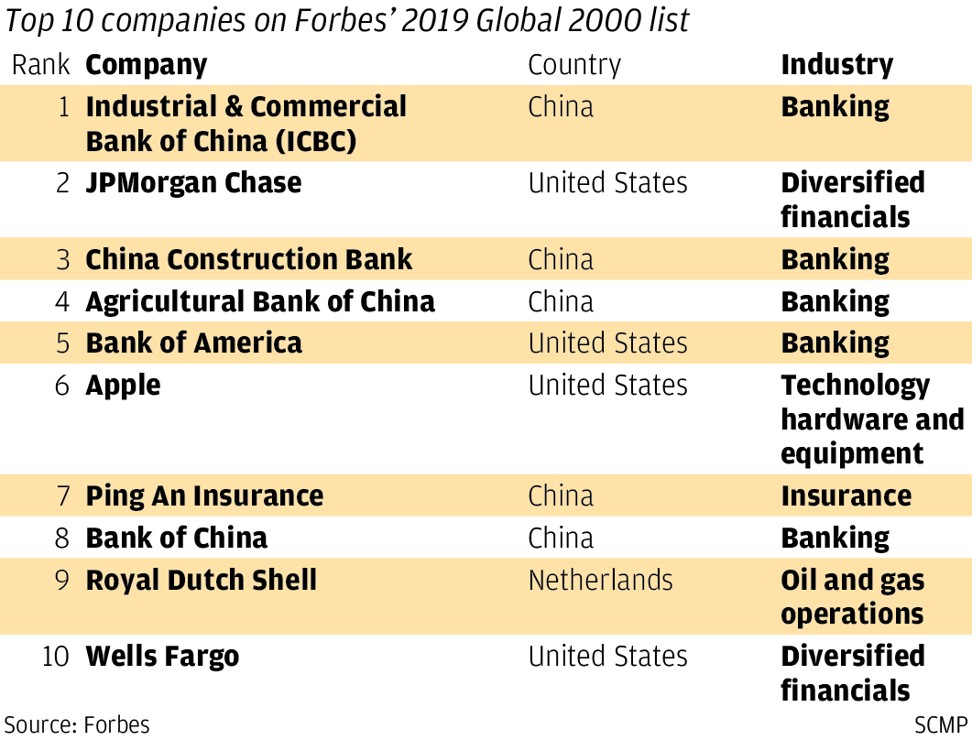
How the Baoshang Bank takeover triggered a confidence crisis in small financial institutions and created a cash crunch in China
- Since May, when the tiny Baotou-based bank prompted regulatory intervention, bigger financial institutions have had reason to question whether smaller counterparts are worth the risk

The global bond market has enjoyed a decent rally since the start of the year, with US 10-year Treasury yields even dropping below the 2 per cent threshold last week, as the market sees that the Federal Reserve is about to cut interest rates aggressively to counter economic headwinds.
However, Chinese bonds have failed to join the rally; benchmark 10-year government bond yields have barely moved. As a result, the yield spread between the Chinese and US in 10-year bonds has widened to more than 120 basis points (bps), from 40 bps at the beginning of the year.
With China having engaged in a monetary easing cycle following several cuts by the central bank to the reserve requirement ratio in the past year, the stubbornly stable bond yield is a mystery to the market. On the other hand, China’s onshore interbank market has been flooded with liquidity, with the overnight Shanghai Interbank Offered Rate falling below 1 per cent on June 24, the lowest in a decade. Obviously, elevated bond yields are also inconsistent with market liquidity conditions.
The real reason behind this strange phenomenon, I believe, is the “cash crunch” facing small and medium-sized financial institutions in China, triggered by the takeover of Baoshang Bank. On May 24, Chinese financial watchdogs announced they would take over Baoshang for a year because of its serious “credit risk”.
Baoshang is a commercial bank headquartered in Baotou, a small city with around 2.76 million residents. When it was taken over, Baoshang had about 576 billion yuan (US$83 billion) on its asset books – compare that to ICBC, China’s biggest bank, with assets equivalent to more than US$4 trillion.
So, why is the market panicking over tiny Baoshang’s takeover? There are two prevailing explanations: first, the market is concerned that a lot more small financial institutions are actually in deep trouble, which could result in a bad debt boom in China. Second, the market sees that Chinese authorities will tighten regulations towards financial institutions, which could force some banks to offload questionable and toxic assets.
I disagree with the first argument. If the market were really concerned about bad debt problems in China, bonds should rally, as the sentiment towards risk should rapidly deteriorate. However, the Chinese bond market has clearly underperformed in recent months, despite flush liquidity in the interbank market. This tells us that liquidity conditions drive the China onshore bond market, at least for now.
So, I am inclined to agree with the second explanation. The Baoshang takeover indicates that financial institutions could face a massive crackdown in the future, potentially a turning point for small and medium-sized financial institutions in China.
Indeed, small and medium-sized financial institutions have relied desperately on wholesale funding, as they lack strong retail banking networks to attract deposits. In other words, they borrow heavily from big banks to expand their asset books, and the consensus is that such aggressive asset expansion could result in an ugly debt problem if regulators can’t properly control and manage the potential damage.
In the meantime, they have leveraged up via a variety of channels, and bonds are often used to achieve this. Typically, small banks borrow money from the interbank market and buy bonds, then use the bond repurchase (that is, use the bonds as collateral) to borrow money and then purchase bonds again.
As government bonds are normally regarded as “risk-free assets”, these bonds can enjoy favourable capital treatment. In this case, a small bank with a relatively thin capital base could increase its assets rapidly via trade in leveraged bonds.
But all of this is based on the assumption of continuous funding, helping the bond traders sail smoothly through market volatility. However, when there is a crisis of confidence in the market, big banks become reluctant to lend to their small counterparts, especially when concerned about the future of small institutions.
As a result, those small and medium-sized banks facing liquidity issues will have to offload their most liquid assets, that is their government bonds. This explains the underperformance of the Chinese bond market over the past few months.
Therefore, a credit event triggered by a small Chinese bank has created a “cash crunch” in China, also indicating that financial deleveraging remains one of the key themes for Chinese authorities. We can’t blame the Chinese regulators, who are doing the right thing to prevent further deterioration in the financial system.
Hao Zhou is senior emerging markets economist at Commerzbank